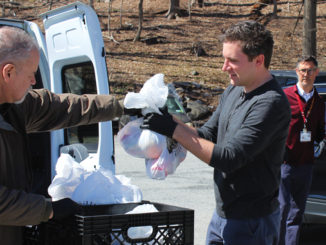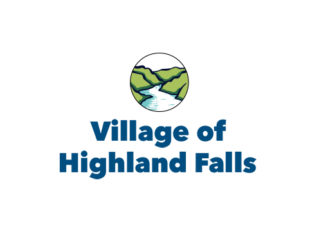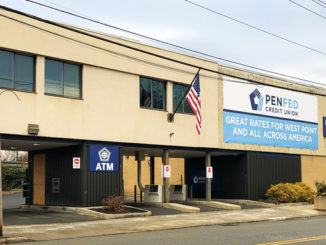That and other business from last week
When the Village Board met on January 22 the majority of the meeting had to do with parking.
Jason Kaczmarkiewicz, director of business development for Complus in Tarrytown, was at the meeting to demonstrate a handheld device the village can purchase for its police officers to use to help enforce parking rules. In addition, he was there to explain how his company can help the village collect some $95,000 in outstanding parking fines owed.
First, writing new tickets. The wifi enabled device that he presented can scan license plates, electronically ‘mark tires’, scan car registrations, take pictures of parking infractions, and create thermal-printed tickets for an officer to place on a vehicle. Those tickets then have online options to pay tickets.
As for the old tickets, Kaczmarkiewicz said they have an average collection rate of 91 percent, and would ask the village for a contract in which they would receive 30% of everything collected.
The outstanding tickets, Police Chief Ken Scott said, range from meter tickets to snow parking to parking too far from the curb, and other violations. Mayor Joe D’Onofrio said he believes they are split about 50/50 between local residents and visitors to the community.
In other business from the meeting, Highland Falls’ Olga Anderson asked for an update on consolidation. D’Onofrio said village officials are still waiting to get a signed agreement back on the consolidation study continuation from Rondout Consulting.
Pat Flynn was on hand to again encourage the board to create a policy on inflatables. Right now the village does not allow them on public property.
The mayor told the board he has named Paul Walker as a consultant to the village, at no cost, to work on grants, land return and other municipal projects.
Correction: Part-time dispatcher Gina Borra, who previously worked as the HFPD’s head dispatcher, was rehired at a salary of $15 an hour, not $13.82 as reported in last week’s News. At the meeting, Scott asked her hourly rate be higher than the typical part-time starting rate because of her longtime experience in the job and the fact that she would require no training. The board said it was an “extreme exception”, but they agreed to the higher rate of pay.



